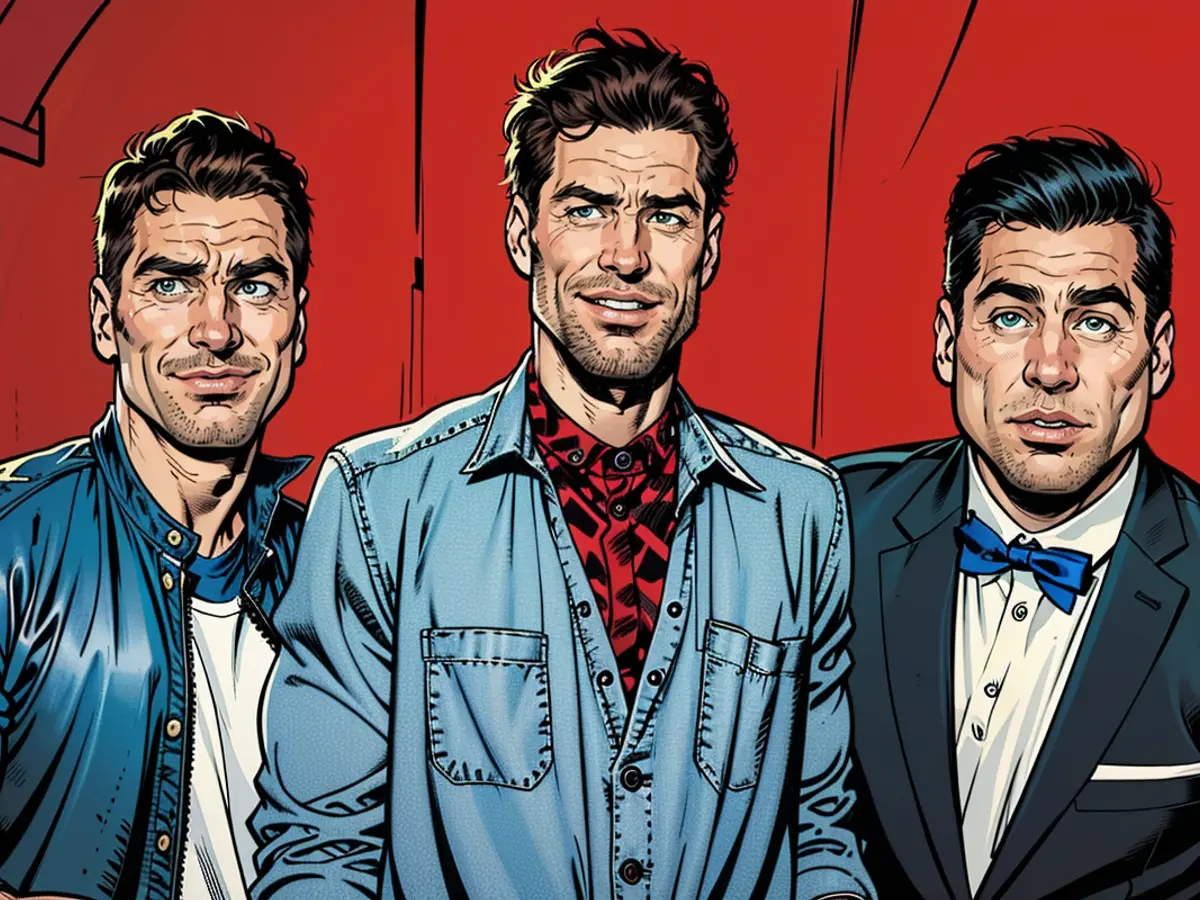Under the authority of the Lord. - Luke Mockridge finds the situation humiliating.
This week's biblical quote comes from 1 Peter 3:10: "Anyone seeking to live a long, satisfying life should be mindful of what they speak, avoiding harmful words and falsehoods."
The renowned humorist and comedian, often known for his ability to tackle controversial topics, seems contemplative. The query posed to him by his colleagues at "Spiegel" mirrors the societal debates of recent times: "Do you perceive a shift in humor, a narrowing of its scope?"
Three years have elapsed since this interview, and I am hard-pressed to find a more fitting response than Otto Waalkes'.
"Not really, no," he replies.
This sentiment is exemplified in the careers of comedians who have attained significant success through their willingness to challenge taboos. Waalkes wonders, "What's going on?" as he observes jokes that are so bluntly misogynistic he finds it "astonishing how far one can push the boundaries." Eventually, he admits, "There's nothing left to explore, and it just becomes uncomfortable."
Otto Waalkes' insight may shock some within our country. Over the years, it has been commonly asserted in the cultural circles of prominent publications that the spectrum of opinions is shrinking. One must be cautious with their speech, lest they incite a public uproar, a wave of "cancel culture" that shuts down careers or threatens bankruptcy.
This article focuses on Luke Mockridge. Specifically, it delves into his joke about disabilities, his outspoken nature, and the dilemma the entertainment industry faces in dealing with him.
Luke Mockridge: Flawed Craftsmanship, Intellectually Dishonest Insults, and Whining
The question ("Do you perceive a shift in humor, a narrowing of its scope?") has persisted throughout German society since the 1970s. Elisabeth Noelle-Neumann, the founder of the Allensbach Institute for Demoscopy, once labeled this phenomenon the "spiral of silence." According to her theory, individuals who feel their beliefs are not represented by the mainstream withdraw from public discourse. In the 1990s and 2000s, people were alarmed by "political correctness," which stifled free speech and creativity. Since the 2010s, this fear has become known as "cancel culture." Nowadays, people don't even bother to translate the fear-mongering from English into German.
However, the space for offensive humor and financial gain has been expanding rather than shrinking. This remains true regardless of the comedian's talent or skill. Mario Barth, Oliver Pocher, and Luke Mockridge have enjoyed successful careers, despite their controversial humor. Even Chris Tall, who styles himself as "Chris Tall," began his career at "TV Total" by joking about disabilities, homosexuals, and black people. He regularly ended his jokes about minorities with the question, "Is that allowed?" These controversial T-shirts were a popular seller in his own shop. In 2017, he addressed an audience of 12,000 in Cologne, shouting, "We're going to burn this place down - essentially, a 'Chris Tall' night!"
The aspect of these comedians that I find most troubling is not their defiance of taboos. Instead, the lack of craftsmanship, the shallow intellect, and the self-pity that I encounter in these individuals leave me baffled. Luke Mockridge serves as an epitome of these flaws.
When "Cancel Culture" Dozes Off
Mockridge essentially copied his jokes about disabled athletes from American comedian Shane Gillis. After the public backlash, his explanation was that he had collaborated on the jokes with the world champion in dwarf javelin, Mathias Mester. However, Mester soon distanced himself from Mockridge, stating that he had not worked with him on the program and found the derogatory remarks about the Paralympics "insensitive and excessively cruel." Mockridge's explanation for his contention in the podcast was not a genuine mistake. In fact, back in 2016, Mockridge came under fire for making disparaging remarks about people with Down syndrome. "Cancel culture" appears to have been asleep during that instance.
I am reminded of Dieter Nuhr, who praises taboo-breaking but then complains about the backlash. In an interview with "Phoenix," he likened the criticism he faced to a "human pogrom." This individual, who relies on public funding and has amassed considerable wealth, regards the public criticism of his person as an affront akin to the historical persecution of Jews.
Pogrom.
Those who bestow harsh words, particularly against minorities, find it impossible to endure similar treatment. The lack of talent, poor humor, and self-pity become recurring elements in those who make substantial income through racism, sexism, homophobia, and the dehumanization of the disabled.
The Sat.1 show featuring Luke Mockridge, tentatively pulled, is titled "What's in the Box?". Those unfamiliar with the Internet since yesterday will recognize the reference from the film "Se7en." The movie concludes with a serial killer who conceals the dismembered head of a pregnant woman in a cardboard box, offering it to her horrified husband as the culmination of his crime. The dismayed detective, as the terrible truth becomes apparent, laments, "What's in the box?"
Most humorous remarks about women, individuals with disabilities, LGBTQ+ community, and people of color often lack a hidden depth or purpose. They don't inspire introspection. They serve as an easy source of amusement for comedians who utilize these topics. Moreover, they offer a lighthearted escape for individuals tired of the "silence trap," "political correctness," and "cancellation culture." These individuals take pride in their disdain for humanity as a form of rebellion.
Comics whose reign is largely fueled by pushing boundaries inevitably hit rock bottom in terms of moral acceptability. Eventually, there's no lower to go. At some point, it becomes uncomfortable.
I wholly agree with Otto Waalkes' sentiments.
In response to the societal debates about shifting humor and its boundaries, waalkes finds the blatant misogyny in some jokes "astonishing" and wonders if there's "nothing left to explore" in pushing boundaries further.
The controversy surrounding luke mockridge's jokes about disabilities and minorities illustrates how the space for offensive humor and financial gain has expanded despite the fear of "cancel culture," demonstrating that waalkes' observations may not be universally accepted.









